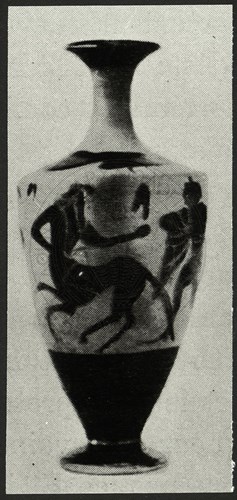Asclepius
Asclepius was the ancient Greek god of medicine. He was the son of Apollo and a mortal woman, who the god killed for being unfaithful. Apollo raised his son alone and taught him whatever he knew about medicine. This being insufficient for the aspiring young god, Asclepius visited the wise centaur Chiron and spent some time with him being instructed in the art of medicine. And when Chiron ran out of knowledge to impart, Asclepius found even more things to learn thanks to a snake who licked his ears clean and imparted the secret knowledge it possessed. Ever since the god kept a rod wreathed with a snake as a symbol of his incredible healing powers. Asclepius became so proficient at his profession that the numbers of mortal men and women on earth began to increase exponentially. He knew so much about medicine that he could cheat death. Or so he thought, until Zeus killed him with his thunderbolt after receiving an official complaint by his brother, Hades, about a wave of resurrections threatening the population of his dark kingdom.

Pyre Γ. Black-figure lekythos [centaur], Konstantina Kokkou-Vyridi, photograph, Εν Αθήναις Αρχαιολογική Εταιρεία © Η εν Αθήναις Αρχαιολογική Εταιρεία
Asclepius’s insatiable desire for knowledge became apparent in 421 BCE when the god of medicine left his sanctuary in Epidaurus and travelled to Athens to initiate the Eleusinian Mysteries. Unfortunately, he arrived late after the other prospective initiates had completed all the preliminary sacrifices and ablutions at sea. The Athenian magistrates and Eleusinian priests, though, were reluctant to lose the opportunity to initiate such an illustrious god, so they repeated the rituals on the 18th day of Boedromion. Asclepius was now ready to march to Eleusis with the other mystai. Since he had no sanctuary in Athens, Asclepius found temporary shelter and a warm welcome by Demeter at the City Eleusinion by the Acropolis.

Asclepius of Eleusis, 150-200, sculpture, Musée du Louvre © 2008 RMN-Grand Palais (musée du Louvre) / Hervé Lewandowski






